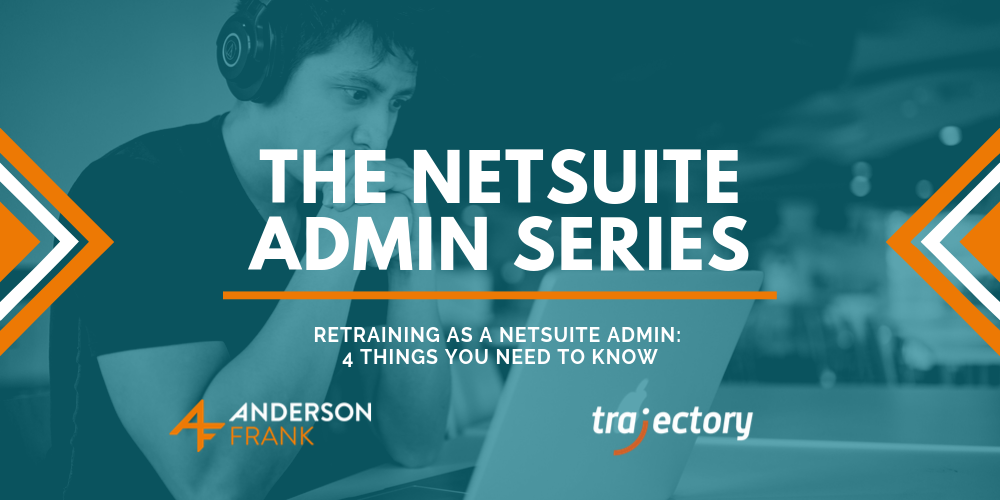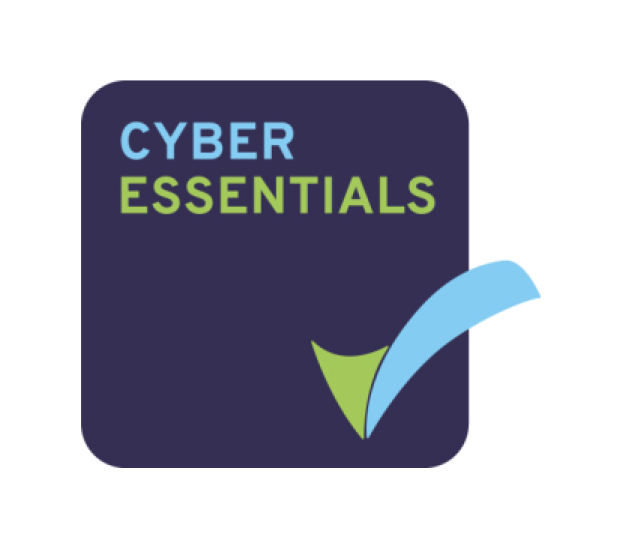
We’ve teamed up with the NetSuite Solution Provider Trajectory Inc, to work on a series of articles based on the life of a NetSuite Admin. Check out Trajectory’s article: NetSuite OneWorld – an Admin guide
Are you thinking of entering the NetSuite industry as a Netsuite administrator in training, but don’t really know where to start? Not to worry, as we’ve got your back.
Whether you’re an expert in the ERP market but want to join the NetSuite community, or you’re an existing NetSuite professional looking to take on the admin world, it’s important to have an insight into the forever-growing ecosystem of NetSuite.
We’ll be putting the NetSuite industry under the microscope for you, analyzing its position within the market, the sectors that favor the software, and what the future looks like for the company. We’ll also give you a comparison of working with NetSuite’s top ERP competitors, the benefit of cross-training, and the ultimate tips and tricks on how to enter the NetSuite community like an absolute boss.
Are you just looking for a refresher course in a specific area instead? Skip to the section that jumps out to you.
The scope of the NetSuite industry
- NetSuite ERP Market Share
- Industries that use NetSuite
- What is the future of NetSuite
Cross-training as an ERP Administrator
- NetSuite vs. Microsoft Dynamics 365
- NetSuite vs. SAP
- NetSuite vs. Infor
Preparing to enter the NetSuite market as an Administrator
A guide to NetSuite learning resources
The Scope of the NetSuite industry
With your to-do list growing by the day, it might seem like a waste of time to set a few minutes aside to update yourself on the industry’s news and trends on a regular basis. It might seem like an altogether trivial task, especially if you’re in a job you love and on the path to a successful career.
However, if you wish to steer your career path in the right direction, it’s imperative to understand the basics of the industry you’re working in. It doesn’t matter if you’re a consultant, developer, or administrator, to enter or dominate a tech vertical you must first understand how its ecosystem works.
Here we’ve put together a scope of NetSuite’s current position within the market and what we should expect from the company in the not-too-distant future.
What is NetSuite’s market share?
As a pioneering leader in cloud computing, NetSuite is the leading provider for cloud-based financial, ERP and single-channel commerce software packages for over 18,000 organizations. In 2016, the company made up 45% of the Financial Management software (FMS) market share, and 40.3% of the FMS global revenue growth, exceeding a growing four times higher than their closest competitor.
What makes NetSuite an industry-leader?
NetSuite’s highly scalable ERP system uses a combination of business intelligence and financial management operations to help both mid-size and large organizations manage their operations and grow in a sustainable-yet-successful manner.
NetSuite’s holistic approach to its cloud ERP solution allows everyone in an organization to gain a customized view of the company’s high-performing indicators, from the people on ‘the shop floor’ to the top management in C suite.
What industries use NetSuite?
Six thousand companies are actively using the NetSuite ERP system, with computer software being the largest market to use the product, followed by IT, recruitment, and retail. We also discovered in our recent NetSuite marketing report that IT, consultancy, and retail are currently the top three industries looking to recruit a NetSuite professional.
Aforementioned, businesses that have integrated NetSuite ERP tend to be a medium-sized company that typically have 50-200 employees and make between 1-10 million dollars in revenue. SME organizations that are using NetSuite include Vital Protein, Fullsteam Brewery, Spear Education, and Greenlane LLC. However, larger companies that brought in over $50 million in revenue and have 500-1,000 employees and are known to use NetSuite, including CARFAC, SurveyMonkey, and Xerox.
What is the future of NetSuite?
The ERP Market
In 2016 the cloud ERP market had a net worth of $18.52 billion (USD); by 2021, it is predicted to grow to $29.94 billion (USD).
The demand for a cloud ERP system is due to the increase of large organizations and SMEs working across multiple industry verticals. Companies require a more comprehensive system that can have functional efficiency while having the capability to implement mobile business applications and cloud infrastructure.
SMEs are predicted to drive the increase in companies across multiple industries using ERP cloud software. As we enter the 2020s, the demand for cloud ERP is predicted to become even higher, and companies across the market will require ERP specialists such as developers, consultants, and administrators.
The future of NetSuite
The growing pace of globalization and the expansion of the cloud technology industry have allowed SMEs to scale faster than ever. NetSuite is a good option primarily for small and some mid-size companies, however, its product currently lacks the capability to manage the workflow of larger organizations and clients look to its competitors like Microsoft Dynamics, Salesforce, and SAP.
In 2016, NetSuite was purchased by Oracle for $9.3 billion. Since then, NetSuite’s had the ability to refine its core customer base of fast-growing, vertical-market SMEs, with an intake between $1 million and $200 million in revenue; since then they have grown by 30% with a current customer base of 16,000 customers.
Currently, Oracle’s acquisition of NetSuite has made it a natural progression for expanding companies to upgrade from the NetSuite system to one of Oracle’s more premium packages that are fit for larger corporations. In return, NetSuite is fueled by Oracle’s resources to focus primarily on its core SME clients and developed its current software to meet the increasing demands of the expanding cloud technology market.
At this year’s SuiteWorld event, NetSuite presented the current projects it’s working on, including a planning and budgeting service, an additional analytics tools for its product family, vertical-market cloud applications, and the strengthening of the SuiteSuccess reconfiguration element.

NetSuite also recently launched Brainyard, a business and benchmarking service providing research, benchmark data, and performance analysis and advice. With the help of Oracle’s vast software portfolio, NetSuite’s planning to include opt-in data from its own customers, with the intention of integrating machine learning capabilities to offer automated insights for its customers. Thanks to the acquisition, NetSuite has managed to breathe new air into its existing products, resulting in an increase in the system being adopted by sellers worldwide.
Because of the increased number of NetSuite users in the global market; sellers, partners, and professionals across the NetSuite community are refreshing their knowledge on the products to stay ahead of the curve and be the go-to provider for the market’s future ERP software needs.
Be part of the next generation of NetSuite Administrator, upload your resume and start training with the market’s leading cloud ERP software.
Cross-training as a NetSuite and other ERP Administrator roles
As the cloud industry expands, having the ability to be multi-disciplined across a range of markets is a valuable skill to have in the bank as an ERP professional.
As mentioned above, there is an increasing demand for cloud-based ERP, with SaaS companies across the industry seeing a rising demand for skilled specialists; resulting in a trend of IT specialist cross-training in niche tech products like NetSuite, to pursue a more remunerative career.
Participants in our independent NetSuite salary survey stated a relevant degree and exposure to more substantial projects were essential factors to impact their NetSuite income, followed closely by expertise in specific verticals and being NetSuite certified.
To help with the cross-training process and assist with developing your skills across the industry, we’ve compared three of NetSuite’s top ERP competitors to see how easy it is to train in each vertical and which ERP industry will advance your career the most
NetSuite ERP vs Microsoft Dynamics GP
| Product Features | ||
|---|---|---|
| NetSuite ERP |
| |
Microsoft Dynamics GP |
|
Earning Potential factors (in order of importance) | ||
|---|---|---|
| NetSuite ERP |
| |
Microsoft Dynamics GP |
|
| Industry Certifications | ||
|---|---|---|
| NetSuite ERP |
| |
Microsoft Dynamics GP
|
|
| Salary | |
|---|---|
| NetSuite ERP |
|
Microsoft Dynamics GP |
|
NetSuite ERP vs SAP ERP
| Product Features | |
|---|---|
| NetSuite ERP |
|
SAP ERP |
|
Earning Potential factors (in order of importance) | ||
|---|---|---|
| NetSuite ERP |
| |
SAP ERP
|
|
| Industry Certifications | ||
|---|---|---|
| NetSuite ERP |
| |
SAP ERP
|
|
| Salary | ||
|---|---|---|
| NetSuite ERP |
| |
SAP ERP
|
|
NetSuite ERP vs Infor ERP
| Product Features | ||
|---|---|---|
| NetSuite ERP |
| |
Infor ERP
|
|
Earning Potential factors (in order of importance) | ||
|---|---|---|
| NetSuite ERP |
| |
Infor ERP
|
|
| Industry Certifications | ||
|---|---|---|
| NetSuite ERP |
| |
Infor ERP
| Infor M3 Qualification |
| Salary | ||
|---|---|---|
| NetSuite ERP |
| |
Infor ERP
|
|
How to enter the NetSuite market as an Administrator
It doesn’t matter if your background is in another ERP system or another position within the NetSuite market. Just having a basic understanding of NetSuite and the benefit of an ERP system is an excellent place to start building your skills.
So What’s Next?
Firstly, decide whether you want to be a technical or functional administrator. It is possible to train as both, but you may find it challenging to balance the individual responsibilities of each role.
Next ensure you’re applying for the right admin role for you, once you’ve done that all you have to do is land and ace an interview. Sounds intimidating, but as we said, we’ve got your back. We’ve put together a to make sure you enter the NetSuite Admin world like a boss. We recommend starting with the following blogs:
NetSuite certifications: the ultimate guide
Preparing for a technical assessment
Preparing for an ERP interview
For further insight into the life of a trained NetSuite Administrator , download our independent NetSuite marketing report
A guide to NetSuite’s learning resources
Whether you’re new to the industry or a seasoned professional, the market can be fiercely competitive. To stand out as a NetSuite admin in training you’ll need to demonstrate a diverse range of transferrable skills and a willingness to progress with an initiative to be a lifelong learner.
Here is a range of learning resources to help you develop your skills as a Netsuite admin in training
Free NetSuite training resources
NetSuite Professional Online Community
NetSuite Professional Slack Community
NetSuite Professional Community


